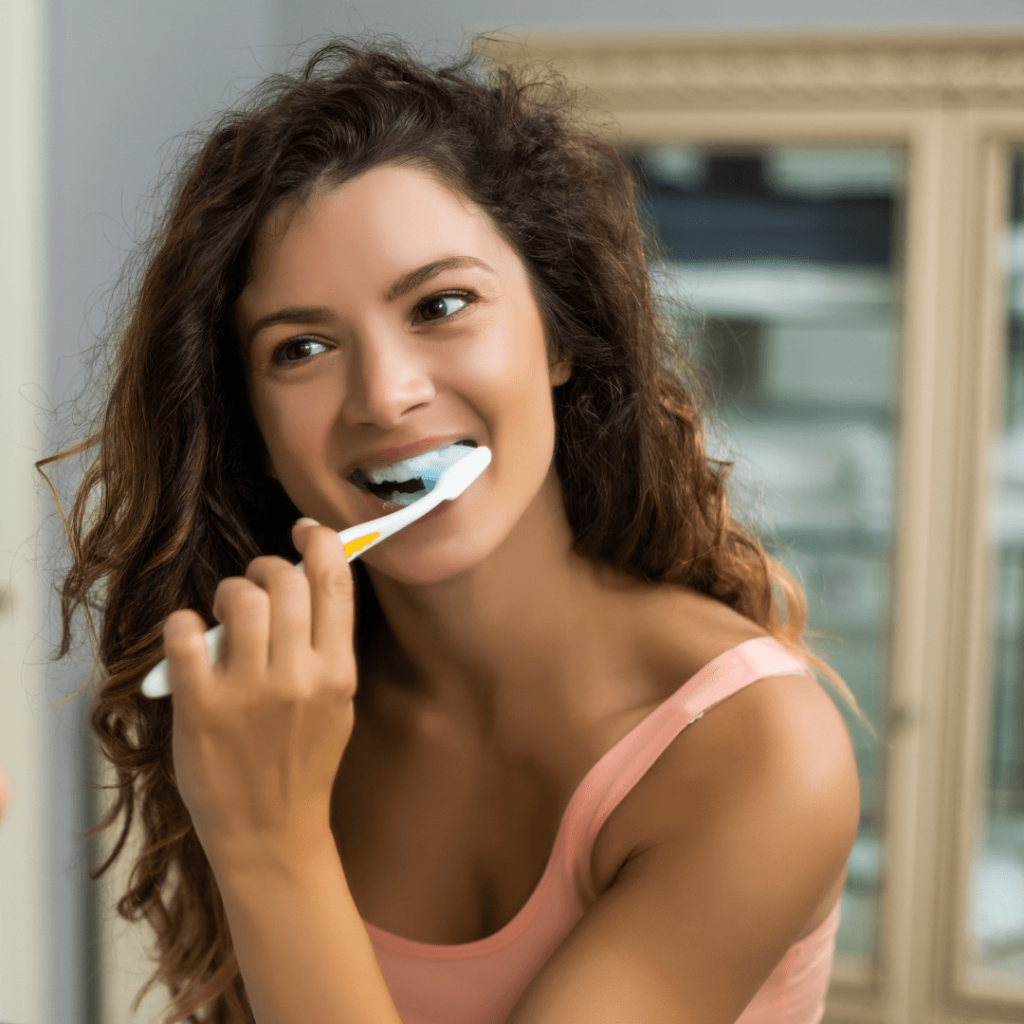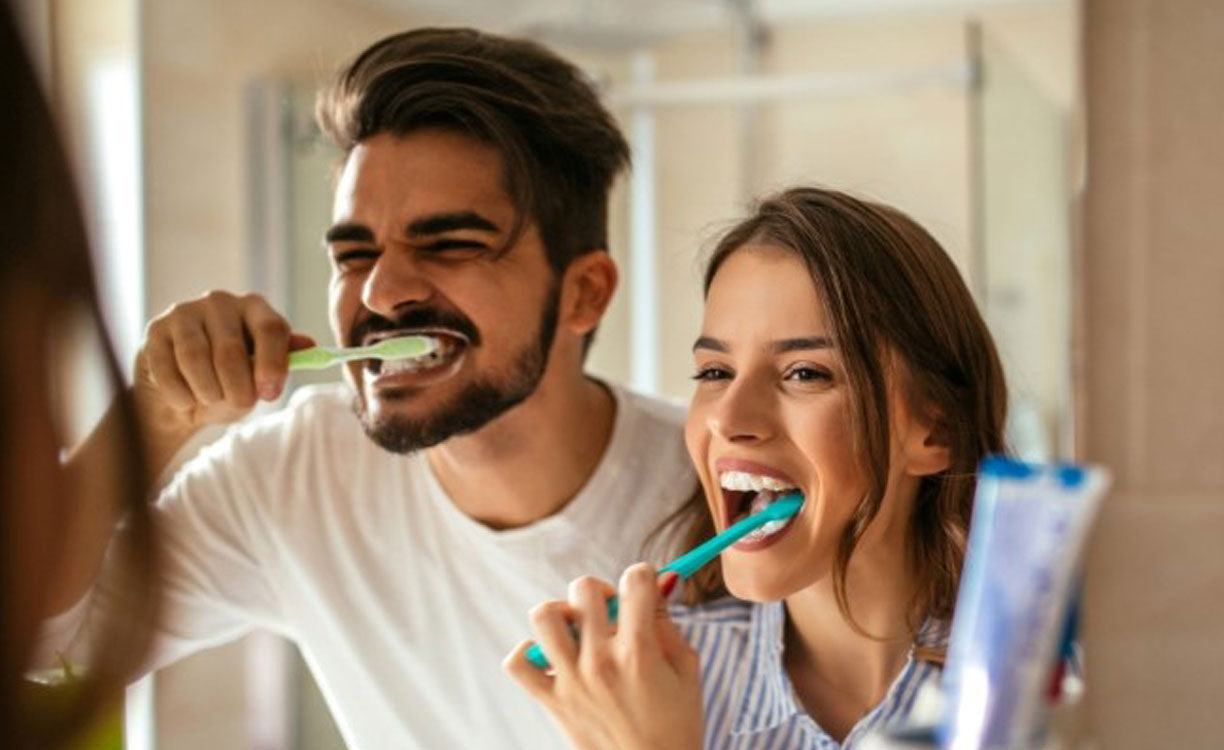Why Modern Dental Crowns Are the Perfect Solution for Restoring Strength and Beauty to Your Family’s Smiles
Why Your Teeth Keep Getting Yellow (Even If You Brush Daily!)
Have you ever looked in the mirror and wondered, “Why are my teeth still yellow even though I brush every day?” If so, you are not alone. Many people experience tooth discoloration despite maintaining what they believe is a solid oral hygiene routine. The truth is, brushing alone is not always enough to keep your teeth sparkling white.
There are several surprising reasons why your teeth may be turning yellow, even with daily brushing. In this blog, we will explore these hidden causes and share tips on how to achieve a truly radiant smile.
1. You Might Be Brushing, But Not Brushing Correctly
Brushing your teeth every day is essential, but the technique, duration, and type of toothbrush you use play a huge role in preventing discoloration. If you are rushing through your brushing routine or using the wrong method, your teeth might not be getting the deep clean they need.
Common Brushing Mistakes That Lead to Yellow Teeth:

Brushing Too Quickly: If you are not brushing for at least two minutes, you are likely leaving plaque and stains behind.
Using the Wrong Toothbrush: A soft-bristled toothbrush is best for removing stains without damaging enamel. Hard bristles can wear down enamel, making teeth more prone to yellowing.
Not Reaching All Areas: If you neglect the back teeth, gum line, and between teeth, plaque buildup can cause discoloration over time.
Skipping Flossing: Brushing alone does not remove plaque between your teeth, leading to hidden staining.
2. Your Diet is Staining Your Teeth
Even if you brush after every meal, some foods and drinks naturally stain your teeth over time. Pigments in certain foods and beverages attach to tooth enamel, causing long-term discoloration.
Common Teeth-Staining Foods and Drinks:
Coffee & Tea – Both contain tannins, which cause stains over time.
Red Wine – Rich in dark pigments and tannins that penetrate enamel.
Berries (Blueberries, Blackberries, and Cherries) – Their dark color leaves stains behind.
Tomato Sauce – The acidity and deep color contribute to yellowing.
Soy Sauce & Curry – Dark and richly pigmented, these foods stain teeth easily.
Sugary Drinks & Sodas – The acidity erodes enamel, making teeth more prone to staining.

Tip: If you consume these foods and drinks frequently, try rinsing your mouth with water afterward or using a straw for dark beverages to minimize contact with your teeth.
3. Enamel Erosion Makes Your Teeth Look More Yellow
Your teeth are covered with a protective layer of enamel, which is naturally white. Beneath the enamel is a layer called dentin, which has a yellowish hue. If your enamel wears down, the yellow dentin becomes more visible, making your teeth appear stained.
Causes of Enamel Erosion:

Brushing Too Hard – Overbrushing can strip away enamel.
Acidic Foods and Drinks – Citrus fruits, vinegar, and carbonated drinks weaken enamel.
Teeth Grinding (Bruxism) – Gradually wears down enamel.
Aging – Naturally leads to thinner enamel over time.
Tip: To protect your enamel, avoid overbrushing, limit acidic foods, and use fluoride toothpaste to strengthen your teeth.
4. Medications and Health Conditions Can Cause Yellowing
Certain medications and health conditions can also lead to tooth discoloration.
Common Medications That Cause Yellow Teeth:
Antibiotics (Tetracycline & Doxycycline) – If taken during childhood, these can cause deep staining.
Antihistamines & Blood Pressure Medications – Can cause discoloration over time.
Chemotherapy & Radiation Therapy – Cancer treatments can affect tooth color.
Health Conditions That May Contribute:
Dry Mouth (Xerostomia) – Less saliva means less natural cleansing, leading to yellowing.
Calcium Deficiency – Weakens enamel, making teeth more prone to discoloration.

Tip: If your medication is causing discoloration, talk to your doctor about alternative options or consider professional teeth whitening treatments.
How to Prevent Yellow Teeth (Even If You Brush Daily!)
If you want to maintain a bright white smile, follow these tips:

Brush Properly – Use a soft-bristled brush and brush for two full minutes.
Floss Daily – Removes hidden plaque that brushing misses.
Use Whitening Toothpaste – Contains mild abrasives that help remove surface stains.
Limit Staining Foods & Drinks – Cut back on coffee, tea, and red wine.
Drink Through a Straw – Minimizes direct contact with staining beverages.
Rinse Your Mouth After Eating – Helps wash away pigments before they stain.
Quit Smoking – Reduces stubborn nicotine stains.
Schedule Regular Dental Cleanings – Removes deep stains and tartar buildup.
Consider Professional Whitening – If discoloration persists, talk to your dentist about whitening treatments.
Brushing daily is crucial, but it is not enough on its own to prevent yellowing. Factors like diet, genetics, enamel erosion, and lifestyle habits all play a role in your tooth color. By understanding these hidden causes and making small changes, you can keep your teeth whiter and healthier for years to come.
Still wondering how to get rid of yellow teeth? Schedule a consultation with a dentist near you to explore the best whitening options for you!

